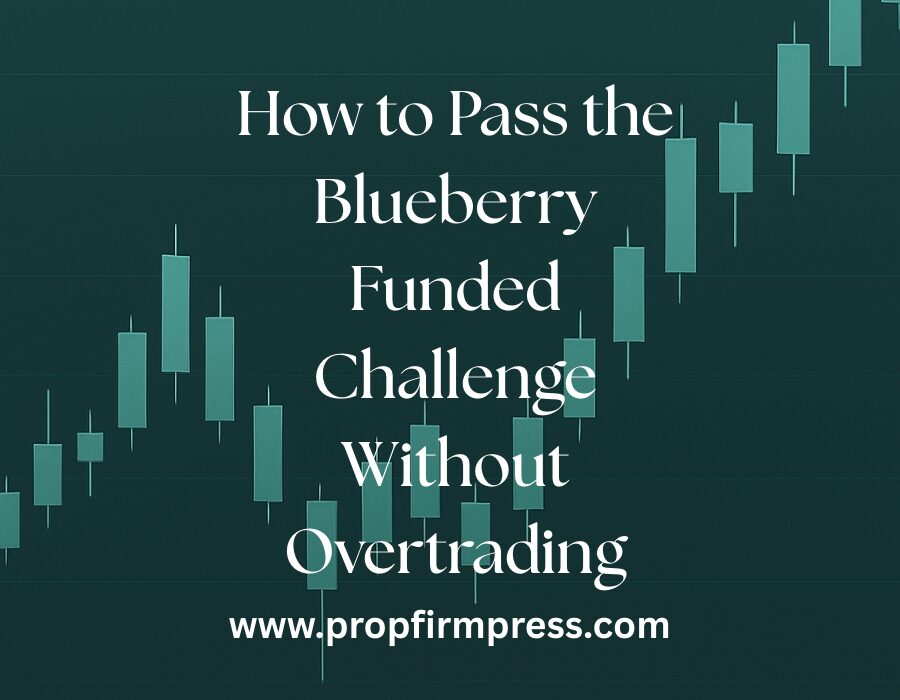How to Pass the Blueberry Funded Challenge Without Overtrading
Understanding the Blueberry Funded Challenge
The Blueberry Funded Challenge is a popular funded trader program designed to test the skills and discipline of aspiring professional traders. Passing this challenge requires traders to meet specific profit targets and trading rules within a set time frame without violating risk management parameters. While many traders are focused on hitting profit goals as fast as possible, overtrading often becomes a major pitfall that derails success. Understanding the structure, rules, and objectives of the challenge is the first step toward clearing it without falling prey to overtrading.
Recognizing the Dangers of Overtrading
Overtrading refers to taking too many trades in a short period or risking too much capital in an attempt to accelerate profits. It is driven by emotions such as fear, greed, or frustration. The Blueberry Funded Challenge enforces strict rules that discourage overtrading, such as daily loss limits and overall drawdown limits. Violating these rules by excessive or reckless trading leads to disqualification from the challenge. Therefore, maintaining discipline and sticking to a well-defined trading plan is critical to avoid unnecessary risk and to protect your account balance.
Developing a Clear Trading Strategy
One of the most effective ways to pass the Blueberry Funded Challenge without overtrading is to develop and follow a clear trading strategy. This plan should define your preferred markets, time frames, entry and exit criteria, and risk management rules. A well-structured strategy helps you focus on high-quality trading setups rather than seeking constant market action. Stick to your strategy and avoid impulsive trades that fall outside your criteria to protect your capital and improve your chance of success.
Implementing Robust Risk Management
Risk management is at the heart of passing funded trading challenges. Blueberry Funded sets limits on daily and overall drawdowns, so you must control your losses effectively. This means setting strict stop-loss levels on every trade, limiting your position size to a small percentage of your account balance, and avoiding chasing losses with bigger or more frequent trades. Protecting your capital allows you to survive through losing streaks and keep your challenge account intact until you reach the profit targets.
Using Patience to Your Advantage
One of the biggest contributors to overtrading is impatience. Challenged traders often become anxious to hit profit targets quickly and start placing trades that do not meet their usual standards. Patience allows you to wait for high-probability setups and ignore market noise. Trusting your trading plan and allowing trades to develop naturally increases your win rate and reduces emotional trading mistakes. Remember that slow and steady profits often beat risky, rapid attempts to reach goals.
Tracking Your Trades and Maintaining Discipline
Maintaining a trading journal is an effective way to monitor your performance and identify tendencies to overtrade. Recording every trade along with your thought process, outcomes, and emotional state will help you stay accountable. Reviewing your journal regularly helps reinforce disciplined habits and spot behavioral patterns. Self-awareness is key to avoiding impulsive decisions and sticking to your challenge’s rules.
Choosing the Right Instruments and Timeframes
Selecting the right markets and timeframes plays a crucial role in avoiding overtrading. Fast-moving markets or very short timeframes like 1-minute charts can tempt traders to take more trades with lower quality setups. Choosing markets you understand well and timeframes that align with your trading style helps you focus on precise opportunities. For example, swing traders might prefer 1-hour or 4-hour charts to reduce the urge to enter excessive trades.
Leveraging Technology to Restrict Overtrading
Modern trading platforms offer tools that can help you avoid overtrading by imposing self-limitations. Setting daily maximum loss triggers, limiting the number of trades per day via alerts, or using automated trading setups can help enforce discipline. Some traders use timers or alarms to take breaks and reflect on their trading decisions. Incorporating these technological supports ensures you don’t deviate from your trading plan in emotionally charged moments.
Embracing a Growth Mindset for Long-Term Success
Passing the Blueberry Funded Challenge without overtrading requires embracing a growth mindset. Understand that setbacks and small losses are part of the learning process. Instead of rushing to meet targets, focus on improving your skills, consistency, and mental toughness. Viewing the challenge as an educational journey rather than a quick profit opportunity helps maintain composure and prevents reckless behavior. The habits you build during this phase will benefit you throughout your funded trading career.
Seeking Support and Learning from the Community
Joining trading communities centered around Blueberry Funded or similar challenges provides encouragement and accountability. Interacting with other traders who share your goals exposes you to different perspectives, trading ideas, and emotional coping strategies. Learning from others’ successes and mistakes can reinforce good practices and reduce the feeling of isolation that may prompt overtrading. Many online groups have experienced traders who provide valuable insights for passing the challenge responsibly.
